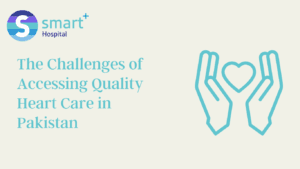In today’s fast-paced world, sleep often takes a backseat to our hectic schedules and demanding lifestyles.
We underestimate the importance of a good night’s rest, thinking that a cup of coffee can make up for the hours of sleep we miss. However, the consequences of sleep deprivation go far beyond feeling groggy in the morning.
In this blog post, we’ll delve deeper into how sleep deprivation affects your heart, shedding light on the lesser-known but critical connection between sleep and cardiovascular health.
Understanding the Sleep Cycle
Before we delve into the heart’s relationship with sleep, let’s understand the sleep cycle. A typical sleep cycle consists of four stages, including REM (Rapid Eye Movement) sleep, which is when we dream.
Each cycle takes roughly 90 minutes to complete, and during a full night’s sleep, we go through multiple cycles. It’s during these cycles that our body rejuvenates, repairs, and, importantly, supports our cardiovascular system.
The Nightly Repair
During deep sleep stages, our body takes care of important maintenance tasks. This includes regulating blood pressure, reducing inflammation, and repairing damaged blood vessels.
When you don’t get enough deep sleep, these vital processes are disrupted, putting a strain on your heart and increasing the risk of heart-related issues.
The Link Between Sleep Deprivation and Heart Health
Elevated Blood Pressure
One of the most concerning effects of sleep deprivation is elevated blood pressure. When you consistently don’t get enough sleep, your body produces stress hormones, such as cortisol, which can lead to hypertension.
High blood pressure is a significant risk factor for heart disease and strokes, making it crucial to prioritize quality sleep.
Increased Inflammation
Chronic sleep deprivation also triggers inflammation in the body. Inflammation is a known contributor to heart disease as it can lead to the buildup of plaque in the arteries.
This buildup restricts blood flow and increases the risk of heart attacks. Getting adequate sleep is essential in reducing this inflammation and protecting your heart.
Impaired Glucose Metabolism
Sleep plays a vital role in regulating glucose metabolism. Sleep deprivation can lead to insulin resistance, making it challenging for your body to manage blood sugar levels effectively.
Over time, sleep deprivation can result in diabetes, which significantly raises the risk of heart disease.
Weight Gain and Obesity
Sleep deprivation can also disrupt the hormones that control appetite, leading to overeating and weight gain.
Obesity is a major risk factor for heart disease, as it can lead to conditions like metabolic syndrome and type 2 diabetes. Thus, sleep deprivation indirectly contributes to heart problems by promoting unhealthy weight gain.
Tips for a Heart-Healthy Sleep
Prioritise Sleep
Now that we understand the link between sleep deprivation and heart health, let’s explore some practical tips to ensure a heart-healthy sleep routine:
Stick to a Schedule
Go to bed and wake up at the same time every day, even on weekends.
Create a Relaxing Bedtime Routine: Wind down before bed by reading a book, taking a warm bath, or practicing relaxation exercises.
Limit Screen Time
The blue light from screens can disrupt your sleep. Avoid electronic devices at least an hour before bedtime.
Create a Comfortable Sleep Environment
Ensure your bedroom is cool, dark, and quiet for optimal sleep conditions.
Watch Your Diet
Avoid heavy meals, caffeine, and alcohol close to bedtime.
The Role of Sleep Apnea
Sleep apnea is a sleep disorder characterized by interrupted breathing during sleep. It can cause oxygen levels in the blood to drop and disrupt the sleep cycle.
Sleep apnea is closely linked to heart disease, as it can lead to hypertension, irregular heart rhythms, and even heart failure. If you suspect you have sleep apnea, seek medical attention promptly, as treatment can significantly reduce the associated cardiovascular risks.
The Healing Power of Naps
If your schedule permits, consider incorporating short naps into your day. A 20-30-minute nap can provide a quick energy boost and improve your alertness. However, avoid long naps, as they can interfere with nighttime sleep.
Napping can be an effective way to mitigate the effects of sleep deprivation on your heart health.
Conclusion
Sleep deprivation is not merely an inconvenience; it’s a serious threat to your heart health. The effects of inadequate sleep on your cardiovascular system are well-documented, and the risks cannot be ignored. To protect your heart and overall well-being, make quality sleep a priority in your life. Remember, a healthy heart begins with a good night’s sleep.
By understanding the profound impact of sleep on heart health and implementing the tips mentioned in this article, you can take proactive steps toward safeguarding your cardiovascular well-being.
FAQs
1. How does lack of sleep affect the heart?
Lack of sleep can lead to problems like obesity and high blood pressure, which increase the risk of heart disease. It may also elevate levels of stress hormones, leading to inflammation and other heart-related issues.
2. What are the 4 signs your heart is quietly failing?
- Fatigue and weakness.
- Shortness of breath during normal activities or at rest.
- Swelling in the legs, ankles, and feet.
- Persistent cough or wheezing with white or pink blood-tinged phlegm.
3. Why does lack of sleep make your heart beat faster?
Lack of sleep triggers your sympathetic nervous system, increasing your heart rate and blood pressure. It also leads to higher levels of cortisol, a stress hormone, which can also increase heart rate.
4. How do you fix sleep deprivation?
- Establish a regular sleep schedule by going to bed and waking up at the same time every day.
- Create a comfortable and dark sleeping environment.
- Avoid electronic devices at least an hour before bedtime.
- Limit caffeine and alcohol intake.
- Practice relaxation techniques like meditation or deep breathing.
5. What are the best hours to sleep for the heart?
Sleeping between 10 PM and 6 AM aligns well with the body’s circadian rhythm, supporting heart health. Aim for 7-9 hours of sleep per night for optimal heart function.




